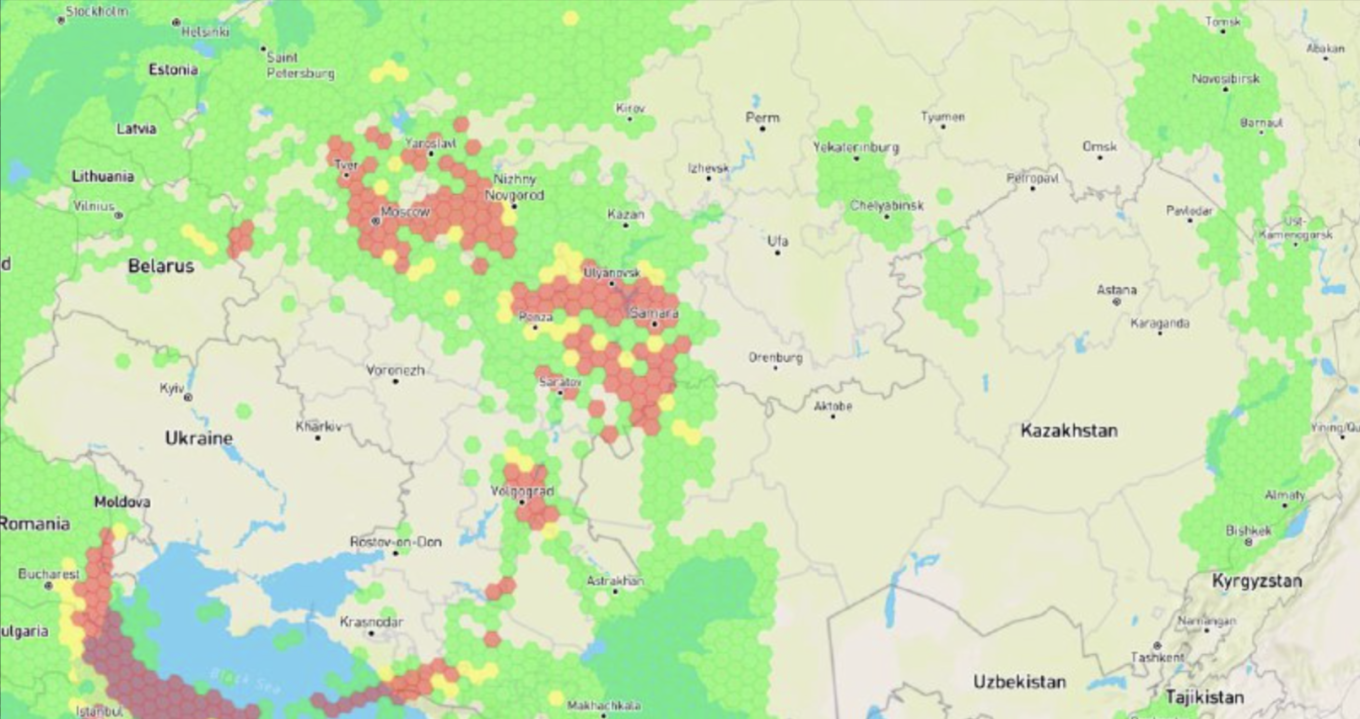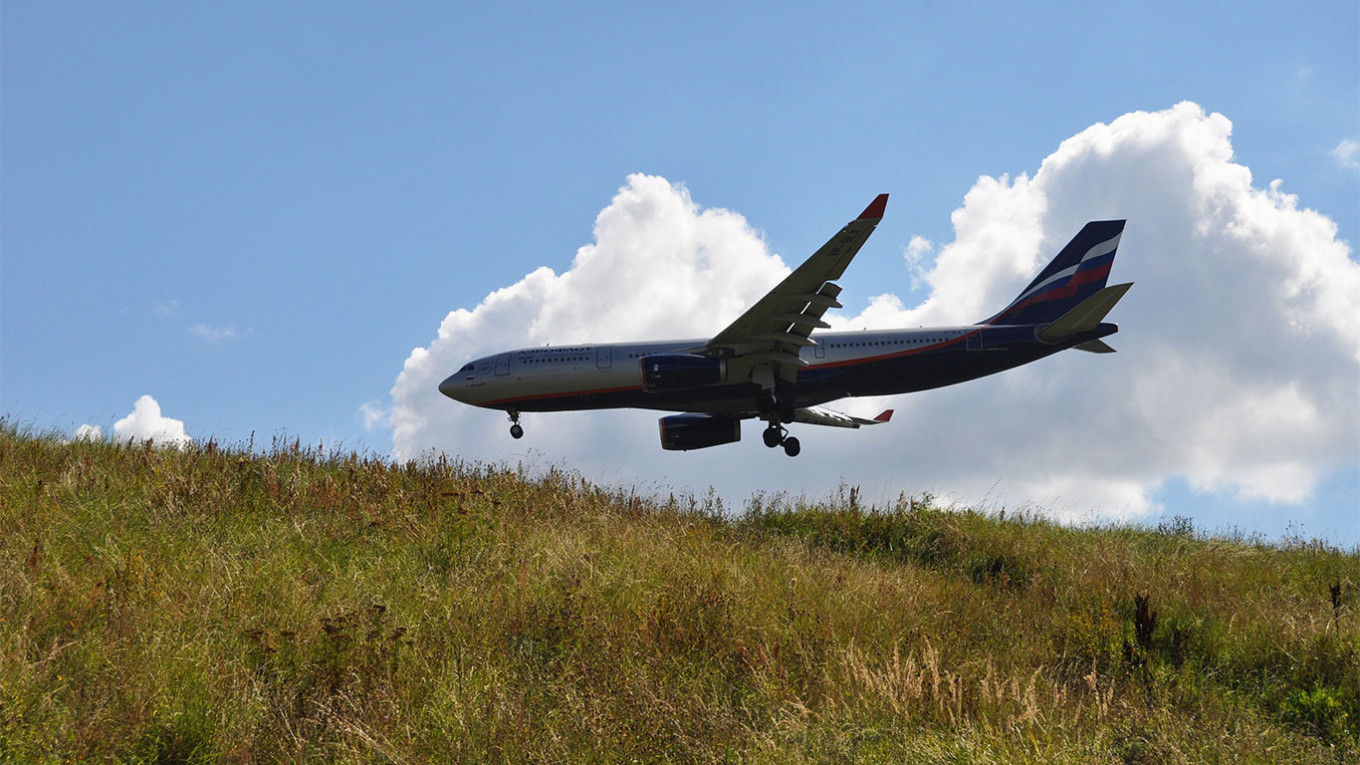Russian authorities have ramped up their GPS suppression measures following a slew of drone attacks in recent weeks.
Since April, “strong” interference has been observed in at least 15 regions across Russia, according to data from gpsjam.org, which tracks satellite communication based on radio messages from civilian aircraft.
Interference is considered “strong” if more than 10% of the aircraft passing over an area each day experience a signal failure, which can cause planes to deviate from their intended flight paths. However, short-term disruptions may go unnoticed by people on the ground using smartphones and other devices.
While earlier this year GPS signals were mostly jammed around Moscow and regions surrounding the Volga River, by mid-April the interference had expanded to include the Ivanovo, Vladimir, Yaroslavl, Ryazan, Kaluga and Tver regions that encircle Moscow.

The reported drone attacks have come ahead of a spring Ukrainian counteroffensive as well as Russia's Victory Day Parade on May 9.
They reached a climax Wednesday as Moscow claimed that two Ukrainian unmanned aerial vehicles targeted President Vladimir Putin's residence in the Kremlin, a claim denied by Kyiv.
Complaints about disruptions in GPS service started Thursday morning, the day after two drones were shot down over the Kremlin in Moscow.
Russian tech Yandex, whose mobile ride-hailing app relies on GPS for ordering taxis, confirmed the disruptions but did not specify their exact cause.
No data is available for potential GPS jamming in Russia's regions bordering Ukraine, as civilian air traffic over these areas was suspended after the start of the war in February 2022.
A Message from The Moscow Times:
Dear readers,
We are facing unprecedented challenges. Russia's Prosecutor General's Office has designated The Moscow Times as an "undesirable" organization, criminalizing our work and putting our staff at risk of prosecution. This follows our earlier unjust labeling as a "foreign agent."
These actions are direct attempts to silence independent journalism in Russia. The authorities claim our work "discredits the decisions of the Russian leadership." We see things differently: we strive to provide accurate, unbiased reporting on Russia.
We, the journalists of The Moscow Times, refuse to be silenced. But to continue our work, we need your help.
Your support, no matter how small, makes a world of difference. If you can, please support us monthly starting from just $2. It's quick to set up, and every contribution makes a significant impact.
By supporting The Moscow Times, you're defending open, independent journalism in the face of repression. Thank you for standing with us.
Remind me later.






